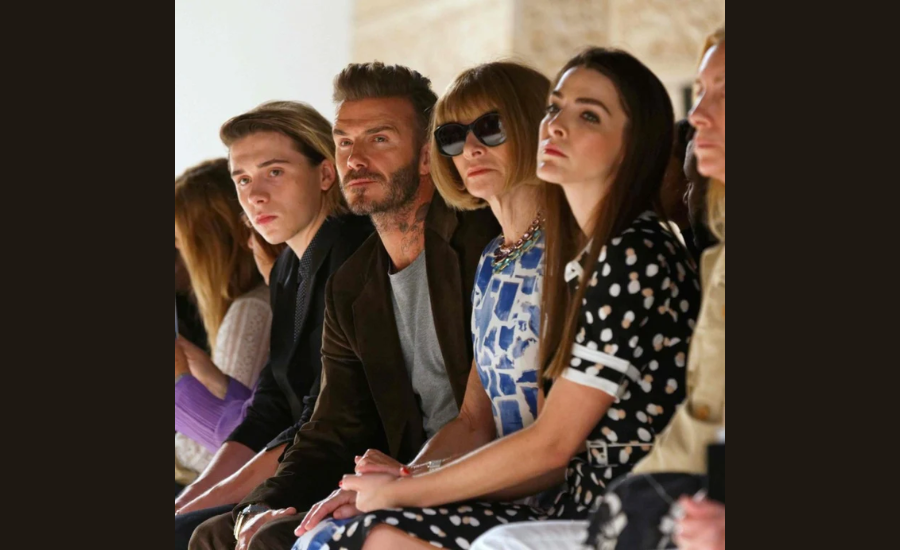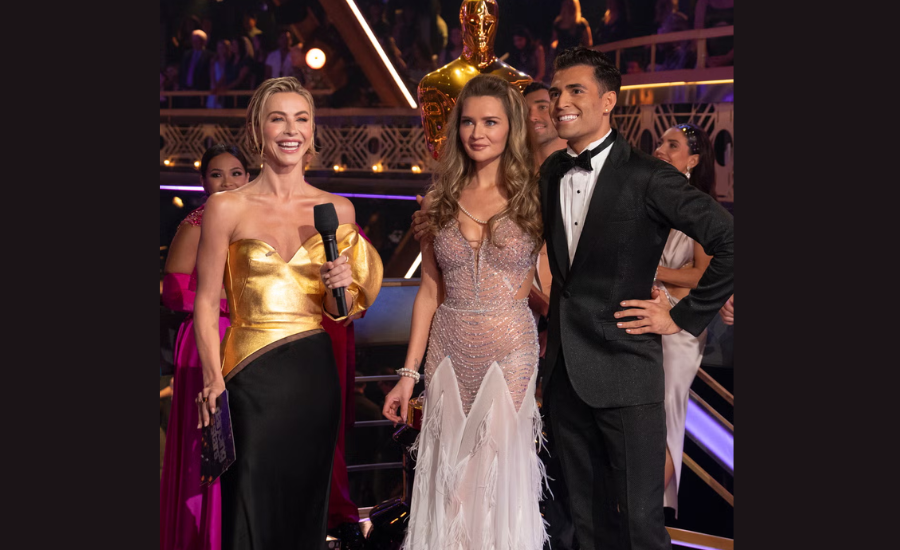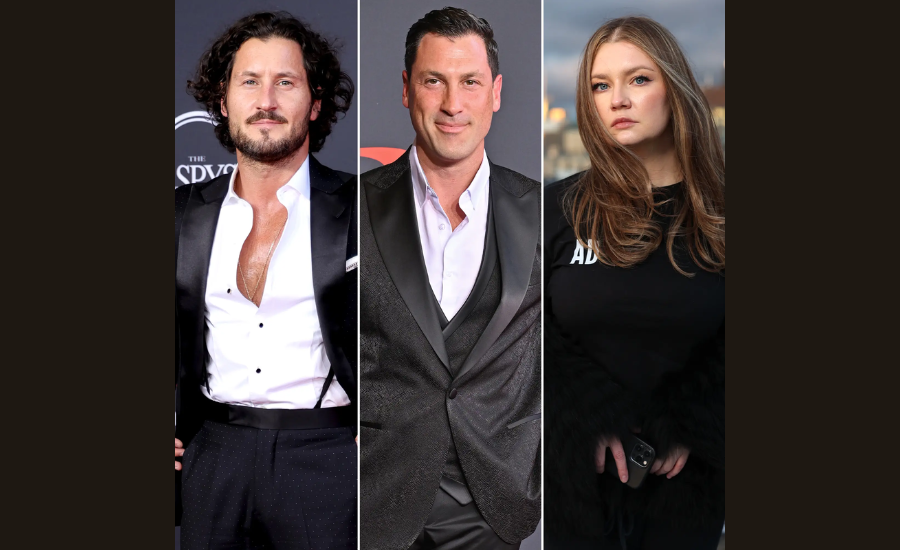Anna Delvey with Celebrities: A Deep Dive into Her High-Profile Connections
Anna Delvey, whose real name is Anna Sorokin, has garnered widespread attention for her notorious persona and highly publicized trial. A Russian-born socialite, Delvey posed as a wealthy New York City socialite and arts benefactor, scamming high-profile figures and institutions. Her story became the epitome of a modern-day grifter—mixing luxury, deception, and celebrity culture in a way that captivated the media and public alike. In this article, we explore Anna Delvey’s interactions with celebrities, her impact on the world of social media, and how her rise and fall became a spectacle that fascinated the rich and famous.
The Rise of Anna Delvey
Anna Sorokin moved to New York City in 2013 with aspirations of entering the world of art and luxury. By adopting the persona of “Anna Delvey,” she claimed to be a wealthy German heiress with a trust fund. This transformation allowed her to infiltrate the city’s elite social scene, gaining access to influential people, celebrities, and high-end events.
Her lifestyle, which involved staying in expensive hotels, dining at exclusive restaurants, and traveling in luxury, led many to believe that she truly belonged to the upper echelons of society. Delvey was known for attending galas, fashion shows, and art events, rubbing shoulders with the likes of designers, models, and financiers. She was able to blend in seamlessly, making her deception even more convincing.
Celebrity Connections: Delvey’s Circle of Influence

The Elite Art World
One of the primary ways Anna Delvey interacted with celebrities was through the art world. She gained access to this circle through her fake reputation as an art patron and philanthropist. In 2016, she sought to launch an ambitious art project called the “Anna Delvey Foundation,” which she claimed would be a cultural arts center in Manhattan. This idea brought her into contact with major figures in the art world.
Delvey frequently attended high-profile art events, including those in the Hamptons, where she mingled with influential personalities. These included top art collectors, curators, and celebrities like Alicia Keys and Kerry Washington, who were known to frequent some of the same exclusive art gatherings that Delvey infiltrated. In fact, many art insiders believed that Delvey was a major player in the scene due to her polished appearance and sophisticated demeanor.
Her ability to convince celebrities and powerful art collectors to invest in her vision of the Anna Delvey Foundation was one of the most audacious aspects of her con. She convinced them to believe in her project, despite the fact that it was entirely fabricated.
New York’s Social Scene
Anna Delvey was a regular presence at New York City’s most glamorous events. These included charity galas, fashion shows, and exclusive parties, where she was often seen mingling with socialites, artists, and even actors. Her frequent attendance at these high-profile events helped her build an image of exclusivity and wealth, and celebrities were drawn to her.
One of the most notable incidents occurred at the Met Gala, where Delvey was reportedly seen in the company of influencers and A-list celebrities. Although she wasn’t invited to the event itself, her proximity to the event’s guests helped fuel her reputation as someone who “belonged” in the world of celebrities. Delvey’s ability to slide into these circles without being questioned demonstrates her skill in navigating high-society situations and leveraging connections to her advantage.
Her charm and the mystery surrounding her background played a crucial role in her celebrity interactions. She had a knack for making people believe in her fabricated persona, and many celebrities were taken in by her story. However, it was also her unpredictability that kept people intrigued. Some saw her as an enigma, while others were curious about her supposed wealth and connections.
The Fashion World and Designer Brands
Anna Delvey was also connected to the fashion industry, another area where celebrities and high-net-worth individuals frequently cross paths. Known for her impeccable style, she was often photographed at exclusive fashion shows, especially those organized by top designers like Prada, Balenciaga, and Louis Vuitton. It was at these events that she rubbed elbows with models, designers, and high-profile personalities.
Her fashion sense was one of the key elements that allowed her to blend in seamlessly with the city’s elite. She wore designer outfits and accessorized with luxury items, giving off the impression that she had an endless budget to fund her lifestyle. Through her appearances at fashion events, she made connections with some of the industry’s most famous figures.
Her interactions with celebrities in the fashion world were often strategic. By positioning herself as a fashion-forward influencer with a large social media presence, Delvey used the power of celebrity endorsements to validate her image. For example, she befriended Rachel Williams, a Vanity Fair photo editor, who would later become a key figure in exposing her fraudulent activities.

The Fall: How Celebrities Reacted to Delvey’s Scam
Despite Anna Delvey’s carefully crafted image and her ability to gain access to high society, her web of lies began to unravel. By 2018, her financial struggles and fraudulent activities were exposed. Delvey’s financial misdeeds included scamming hotels, restaurants, and private individuals, all while living lavishly beyond her means.
Once her arrest and trial gained media attention, celebrities who had once associated with her were forced to reckon with the implications of their involvement. Some, like Rachel Williams, would eventually speak out, revealing the depths of Delvey’s manipulation. Williams co-authored a book, My Friend Anna, detailing the shocking story of how she was deceived by Delvey.
Celebrities like Kim Kardashian, who frequently interacted with high-profile socialites, were asked about their relationships with Delvey. However, Kardashian, along with other A-list celebrities, distanced themselves from Delvey once the full extent of her scam came to light. The exposure of Delvey’s lies served as a stark reminder of how easily someone can exploit the glamour and allure of celebrity culture for personal gain.
Delvey’s Impact on Celebrity Culture
Anna Delvey’s story had a profound impact on celebrity culture. It was a cautionary tale of how the line between authenticity and image can blur, especially in the age of social media. Celebrities who once found her intriguing or simply enjoyed her company now had to reconsider the meaning of “celebrity friendships” and “influencer status.”
Her rise and fall highlighted how easy it is to deceive the public, and even celebrities, when appearances are enough to create credibility. In an era where social media dictates much of our perception of success, Delvey’s ability to craft a persona out of thin air became a symbol of the power—and danger—of curated identities.
Moreover, the media frenzy around Delvey exposed the lengths to which celebrities go to protect their public images. It also showcased the dark side of social media, where personal brands are often built on illusion and perception rather than substance.
FAQs
Q: Who is Anna Delvey, and how did she become famous?
A: Anna Delvey, whose real name is Anna Sorokin, became famous for posing as a wealthy socialite and arts benefactor in New York City. She gained access to high-profile celebrities, artists, and influencers by fabricating a false identity as a German heiress with a massive trust fund. Her scams included convincing wealthy individuals and institutions to invest in a fake cultural arts project. Her story gained media attention after her arrest and trial for fraud.
Q: How did Anna Delvey interact with celebrities?
A: Anna Delvey mingled with celebrities through various social scenes, including high-profile art events, fashion shows, and exclusive galas. She was seen at events like the Met Gala and rubbed shoulders with artists, influencers, and actors. Her charm and sophisticated appearance allowed her to infiltrate the world of celebrities, convincing them that she belonged in their circles.
Q: What was Anna Delvey’s connection to the art world?
A: Anna Delvey used the art world as one of her main entry points into celebrity circles. She falsely claimed to be an art patron and philanthropist and tried to launch the “Anna Delvey Foundation,” a luxury arts center in Manhattan. She attended exclusive art events, where she interacted with top art collectors, curators, and even celebrities like Alicia Keys and Kerry Washington.
Q: Did Anna Delvey have any notable friendships with celebrities?
A: While many celebrities were initially intrigued by Anna Delvey, some formed close friendships with her, including Rachel Williams, a Vanity Fair photo editor. Williams later wrote a book detailing how Delvey had manipulated her. After Delvey’s fraudulent activities were exposed, many celebrities distanced themselves from her, including Kim Kardashian, who was asked about her association with Delvey but chose to distance herself.
Q: How did Delvey’s scam affect celebrity culture?
A: Delvey’s story exposed the blurred line between authenticity and image in celebrity culture. It highlighted the role of social media in creating carefully curated personas and how easily someone can manipulate their way into influential circles. Her rise and fall acted as a cautionary tale for celebrities and the public about the dangers of image-driven success and the impact of deception in an age dominated by perception.
Conclusion
Anna Delvey, born Anna Sorokin, gained widespread attention by posing as a wealthy socialite in New York City, infiltrating elite circles and befriending influential celebrities like Alicia Keys, Kerry Washington, and Rachel Williams. Through her fabricated persona, she mingled with the city’s elite at art events, fashion shows, and high-profile galas, building an image of wealth and exclusivity. However, her deception unraveled as her financial misdeeds were exposed, revealing she had scammed hotels, restaurants, and individuals while pretending to be a philanthropist. Once her arrest became public, many celebrities distanced themselves from her, highlighting the dangers of social media and celebrity culture, where curated identities can easily be manipulated for personal gain. Delvey’s story serves as a cautionary tale about the power of image, the consequences of deception, and the importance of authenticity in a world where perception often outweighs reality.
Discover the freshest ideas and trends in lifestyle at crispme.

